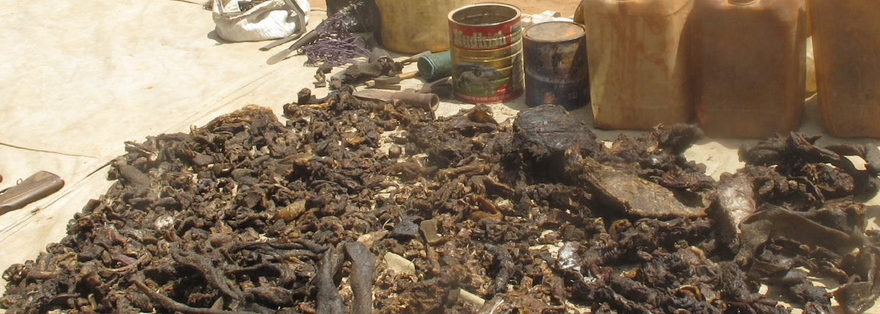The economic downturn has hit the residents of Bor town hard, and in a desperate bid to survive, many have turned to hunting wildlife for survival.
This illegal practice, while providing immediate relief for some, raises serious concerns about the long-term impact on the region’s wildlife populations.
Speaking to Radio Tamazuj, a local resident who identified himself only as Daniel said with the cost of basic food commodities soaring beyond reach, hunting has become a necessary means of survival.
“When we go to the market and ask for maize flour or foodstuff, everything is costly. So, we cannot afford, and the only means of survival now is to go to the forest and get some animals to provide something to eat for our families,” Daniel said.
Another Bor resident who identified himself only as Akuku for fear of reprisal from the wildlife authorities said the cost of basic commodities has skyrocketed, forcing many including him to rely on the area’s wildlife to sustain his family.
“I am a person who can do whatever comes my way as long as it’s something that will bring food to the table. What I want to add is to the government that say why we kill the animals—you know—it might be good, but sometimes we have to look at the other side of the story. Which one is more important? Is it for a person to die and protect the wildlife or for the wildlife to die and the person not to die?” Akuku asked.
When reached for comment, local wildlife authorities expressed their inability to effectively safeguard the animals, citing a lack of resources and the overwhelming need to address human hunger first.
Captain Akol Majak Keer, the Spokesperson of Wildlife in Jonglei State, told Radio Tamazuj that it’s a difficult situation for wildlife officers to protect the animals amidst hunger.
“We advise people not to kill the animals for fun—you kill only for food. We have observed that some people go to the forest and kill a lot of animals and even leave some in the forest dead—that behaviour is not good,” Akol said. “Animals are the resources for the country and we preserve them for current and future generations.”
This shift to wild meat consumption is not without its consequences. Captain Akol warned that the increased reliance on wild meat could lead to significant declines in animal populations, potentially disrupting the ecosystem and leading to further food insecurity in the long run.
The authorities, he said, continue to seek ways to support both the residents and the wildlife, hoping for a resolution that ensures the survival and prosperity of all.
In the town of Bor, residents are facing a dire economic situation. The cost of basic commodities has skyrocketed, forcing many to turn to hunting as a means of survival.
The market prices for staple foods have risen sharply. A 30 kg bag of maize flour now sells for SSP 40,000, and 25 kg of beans sells for SSP 50,000, while a 5-litre jug of cooking oil trades at SSP 18,500. These prices have jumped significantly from two weeks prior, when they were SSP 26,000, SSP 38,000 and SSP 12,500, respectively.
The price hikes reflect the country’s runaway inflation and the devaluation of the South Sudanese Pound (SSP) against the US dollar.
As of Thursday, 1 USD equals approximately 1,720 SSP on the black market. This exchange rate is a stark indicator of the economic challenges faced by the residents of Bor, where earning a living wage has become increasingly difficult.
The situation in Bor is a miniature of the larger economic struggles within the country. With limited government intervention and multiple taxes levied on businesses, the cost of living continues to rise, leaving many to rely on traditional means of subsistence, such as hunting.
The community calls for more support and stabilization of market prices to ease the burden on the local population.




